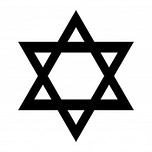Art: Hi Rabbi Mordecai. Thanks for coming.
Rabbi: Of course, Art. I’m looking forward to our conversation today. I want to know more about how I can have eternal life. And also I don’t understand how there can be one God comprised of three persons.
Art: Mordecai, I think answering your second question first would be best because that will lay an important foundation. Let’s read from the Torah. Rabbi, would you please read Deuteronomy 6:4 in Hebrew first, and then in English?
Rabbi: Sure. Let me begin. Deuteronomy 6:4
Shema Yisrael Adonai Elohenu Adonai Echad.
“Hear, O Israel: The Lord our God, the Lord is One!
Art: Mordecai, surely the Shema tells us unequivocally that God is One. Do you agree?
Rabbi: Of course.
Art: Good. We are in agreement. Now as an Orthodox Rabbi, you know the Hebrew language well. So, I’m going to ask you to comment on the grammar of some of the words in this verse, Deuteronomy 6:4. OK?
Rabbi: Sure. I’m happy to do that.
Art: OK. I’m going to read the verse in Hebrew and then I’ll ask you about the grammar.
Shema Yisrael Adonai Elohenu Adonai Echad.
Mordecai, what is the grammatical form or morphology or part of speech of the Hebrew word Elohenu?
Rabbi: Elohenu is a plural noun. It’s derived from the plural noun Eloheem. If we want to get technical Elohenu is a common masculine plural construct noun. It means our God.
Art: Thanks Rabbi. Now what is the grammatical form of the Hebrew word Echad?
Rabbi: Echad is singular. It is the number one, a cardinal number. It is absolutely singular, Art.
Art: Thank you, Mordecai. Let me read another verse to you. Numbers 13:23
Then they came to the Valley of Eshcol, and there cut down a branch with one cluster of grapes; they carried it between two of them on a pole. They also brought some of the pomegranates and figs.
Now here Echad, the singular number one, is used to name something that is complex, something that is made up of more than one item namely a bunch or cluster of single grapes. Let me read one more verse to you, Rabbi:
“Dan shall judge his people As one of the tribes of Israel.
This is from Jacob’s famous prophecy at the end of his life in Genesis 49, verse 16. In this verse one is Echad. But again Echad is describing one of a number of single things namely one of the tribes of Israel.
Rabbi, I believe that Echad is nearly always, if not always, used in this manner. I could give you many more examples. Echad is therefore one but it’s a complex one. Do you agree with this Rabbi?
Rabbi: I have to say that you’re correct, Art. In fact, come to think of it, there is a word in Hebrew that I’d like to define for you. Let me read you a verse first, Genesis 22:2:
Then He said, “Take now your son, your only son Isaac, whom you love, and go to the land of Moriah, and offer him there as a burnt offering on one of the mountains of which I shall tell you.”
Art, this verse is talking about the Akeedaah, the sacrificing of Isaac by his father Abraham. Now of course the LORD intervened and the sacrifice didn’t occur. Abraham was being tested by the LORD. But the point here is that the word only is in Hebrew, yachid. Perhaps a better translation would be “Take now your son, your one and only, Isaac”. One in this verse is clearly not a complex one. It is a one that is indivisible. Abraham had only one son of promise, Isaac.
Art: That’s fascinating, Rabbi. Rabbi, I’m going to now pose to you an amplified translation of the Shema, Deuteronomy 6:4:
“Hear, O Israel: The Lord our God has a plural nature. He is Lord, the one and only Lord, and He has a complex makeup”.
Rabbi: So, Art, let’s say that I accept your explanation that God is a plural God, that He is a complex one. How does that help me to have eternal life?
Art: Mordecai, I’m going to answer that question by reading three more verses. They’re from the Gospel of John:
John 1:1 In the beginning was the Word, and the Word was with God, and the Word was God.
John 1:14 And the Word became flesh and dwelt among us, and we beheld His glory, the glory as of the only begotten of the Father, full of grace and truth.
John 3:16 For God so loved the world that He gave His only begotten Son, that whoever believes in Him should not perish but have everlasting life.
Mordecai, Yeshua is often called the Word in the New testament. He is the Son of God. Whoever believes in Him will never perish but will have everlasting life.
Rabbi: I’m beginning to see something. Yeshua is equal to God. He is God. So if I believe in Him, He can grant me eternal life? Is Yeshua also the Messiah?
Art: Rabbi, He is the Messiah and He can grant you eternal life if you believe in Him. Let’s meet next week. I’ll show you where the Tanach tells us that He’s the Messiah.
Rabbi: My head is exploding again Art. But in a good way. See you next week.




